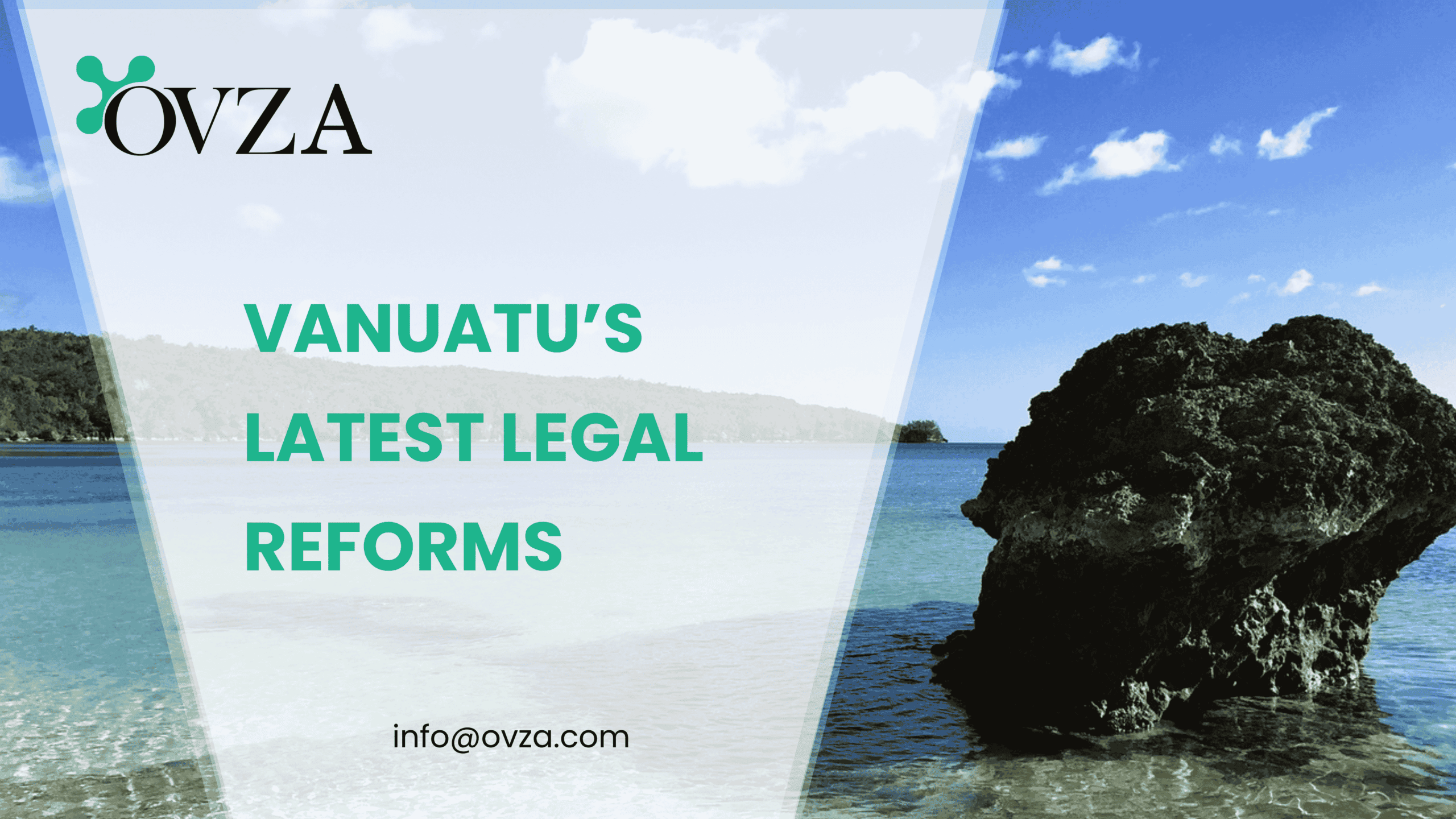Consultants use offshore structures to manage liability, enforce contracts, protect assets, and meet international compliance and tax regulations. The deployment of offshore corporate structures by independent consultants, advisory firms, and professional service providers has become a consistent feature in international tax and legal structuring. This phenomenon, often involving International Business Companies (IBCs) or similar offshore entities, is not merely a function of tax deferral but is rooted in broader legal rationales that include asset protection, regulatory positioning, contractual flexibility, and multi-jurisdictional service delivery. The use of such structures raises a range of legal considerations, particularly in light of evolving standards for transparency, substance, and anti-avoidance.
Legal Rationales and Cross-Border Planning
Consultants often operate across multiple legal jurisdictions, rendering the centralized regulation of income, liability, and contractual obligations impractical through a single onshore entity. By incorporating an offshore company in a jurisdiction such as the British Virgin Islands, Belize, or Seychelles, the consultant gains access to a corporate form that allows for separation between personal and business liabilities, enforceable contract governance in a neutral legal system, and potential access to global banking solutions. These legal advantages are amplified when the consultant’s clients are dispersed across different jurisdictions, allowing for more streamlined contract enforcement and reduced exposure to domestic regulatory fragmentation.
From a tax planning perspective, consultants typically use offshore structures to achieve tax neutrality in jurisdictions where their income is earned outside the country of incorporation. Most IBC regimes apply a territorial tax system or provide full tax exemptions on foreign-sourced income, such as that under the Seychelles IBC Act or Belize IBC Act. Provided the offshore company is not deemed to have a permanent establishment or effective management in a high-tax jurisdiction, the legal structuring of consultancy revenue through such vehicles is generally permissible under the rules of source-based taxation. Nevertheless, tax reporting obligations in the consultant’s home jurisdiction, such as under CFC rules, must still be considered.
Legal clarity and enforceability also play a decisive role. Many consultants work under complex contractual frameworks involving multinational corporations, governmental bodies, or international NGOs. In such arrangements, the use of an offshore company domiciled in a jurisdiction with well-developed common law infrastructure—such as the British Virgin Islands or St. Kitts & Nevis—offers enhanced certainty in contract interpretation, choice of law, and arbitration procedures. The company’s legal personality becomes an instrument for formalizing consulting arrangements, issuing invoices, holding professional indemnity insurance, and entering into binding international agreements.
The protection of personal assets is another key legal motivation. In litigious sectors such as finance, IT consulting, or international compliance, the use of an offshore company allows for segregation of business risk from personal wealth. In many cases, consultants structure their operations so that the offshore company owns the intellectual property, client contracts, and receivables, while the individual remains at arm’s length as a director or beneficial owner. This approach is consistent with the principle of separate corporate personality, as affirmed in foundational cases such as Salomon v. A Salomon & Co Ltd [1897] AC 22, and reinforced in the statutory protections offered by most IBC regimes.
The legitimacy of these structures is increasingly conditioned on compliance with international standards, including beneficial ownership disclosure, economic substance requirements, and anti-money laundering rules. As such, consultants utilizing offshore structures must maintain sufficient documentation, adhere to due diligence protocols, and ensure that the structure reflects genuine business activity. Many service providers now operate within regulated frameworks where consulting entities must demonstrate the legitimacy of their operations through licensure or proof of service delivery.
Jurisdictional Choice, Licensing, and Transparency Obligations
The jurisdictional selection for offshore structuring is legally significant. Consultants must align their operational and compliance objectives with the statutory framework of the chosen jurisdiction. For instance, the British Virgin Islands’ Business Companies Act, 2004 provides a well-regarded legal infrastructure and confidentiality protections without imposing corporate income tax on foreign-sourced income. Conversely, jurisdictions such as Anguilla or Saint Lucia may offer simplified filing procedures or lower maintenance costs but differ in terms of reputational risk and the stringency of local regulation. Therefore, the selection of a jurisdiction is not merely a cost-driven decision but a legal strategy involving conflict-of-law considerations, enforceability of judgments, and international perceptions of corporate legitimacy.
In certain sectors, consultants operating through offshore structures are required to obtain professional licenses or authorizations depending on the services rendered. This is especially relevant for those offering investment advisory, legal compliance, or fiduciary services. In Vanuatu, for example, financial dealers must be licensed under the Financial Dealers Licensing Act, even when operating through an offshore company. Licensing requirements introduce regulatory oversight and conditions tied to capital adequacy, reporting obligations, and fit-and-proper criteria, which must be satisfied on an ongoing basis to preserve the legality of the corporate structure.
Transparency obligations are now central to the legal operation of offshore entities. While some jurisdictions still preserve a degree of confidentiality, international instruments such as the OECD’s Common Reporting Standard (CRS) and the U.S. Foreign Account Tax Compliance Act (FATCA) have made it necessary for offshore companies to disclose ownership and financial activity to tax authorities. Consultants utilizing these structures must ensure that beneficial ownership information is accurately maintained and, where necessary, reported by financial institutions holding accounts in the name of the company.
A related concern is the treatment of management and control under tax residency rules. Offshore structures are often challenged by revenue authorities in high-tax jurisdictions that apply the “place of effective management” test to determine whether a company is in fact tax resident domestically. If a consultant operating through an offshore IBC manages the company entirely from within their country of residence, tax authorities may disregard the foreign incorporation and treat the income as taxable locally. Legal advisers must ensure that corporate governance arrangements, including board meetings, decision-making protocols, and operational oversight, are implemented in a manner consistent with the formal jurisdiction of incorporation. Otherwise, the offshore company risks being disregarded under domestic anti-avoidance doctrines or subjected to double taxation.
In addition to tax and governance concerns, consultants often use offshore structures to manage intellectual property rights, including copyrights over reports, proprietary methodologies, or software developed during engagements. The offshore entity may hold the IP and license it to onshore affiliates or direct clients. This structure can offer contractual and legal protections, especially when the consulting services involve complex deliverables, cross-border teams, or long-term licensing agreements. However, international legal trends—particularly those developed under the OECD’s Pillar One and Pillar Two frameworks—are increasingly challenging structures that separate income and substance.
Consultants Use Offshore Structures with Legal Durability
The long-term viability of offshore structures used by consultants depends on their alignment with evolving regulatory frameworks and the ability to demonstrate legal form backed by substantive operational behavior. Where these structures are carefully implemented, consultants can achieve not only administrative and financial efficiencies but also enforceable legal separation between personal and business liabilities, jurisdictional flexibility, and contract portability. These outcomes are most defensible when supported by formal governance procedures, regulatory registrations where required, and real-world documentation of services rendered and decisions made.
The integration of legal advice at the structuring stage is essential. The interrelationship between domestic tax law, international information exchange, and the offshore company’s corporate obligations requires precise navigation. Practitioners must account not only for how a structure operates under the law of the incorporating jurisdiction, but also how it will be perceived and treated under the domestic laws of clients, counterparties, and tax authorities. Misalignment between these legal systems often results in denial of benefits, administrative penalties, or recharacterization of income and assets.
Offshore structures are also increasingly scrutinized in dispute contexts, particularly in arbitration, commercial litigation, and enforcement proceedings. The effectiveness of the structure in insulating liability or holding rights depends on the legal capacity of the offshore entity to act, the formality of its internal records, and its track record of compliance. Accordingly, where consultants use such vehicles to enter into contracts or hold IP, their offshore company must be legally robust and procedurally maintained to withstand review or enforcement under foreign legal systems.
Conclusion
Consultants use offshore structures primarily to access legal advantages that support cross-border operations, protect personal assets, and reduce exposure to jurisdictional inconsistencies. These structures are lawful when designed and operated within the boundaries of applicable tax, licensing, and disclosure obligations. However, the legal efficacy of offshore entities is increasingly dependent on the integration of substance, compliance, and documentation standards consistent with international regulatory expectations. When properly constructed, the use of an offshore company by a consultant is not a form of evasion but an instrument of lawful structuring, enabled by private international law, supported by contract jurisprudence, and shaped by regulatory convergence.
Disclaimer: The information provided on this website is intended for general reference and educational purposes only. While OVZA makes every effort to ensure accuracy and timeliness, the content should not be considered legal, financial, or tax advice.












